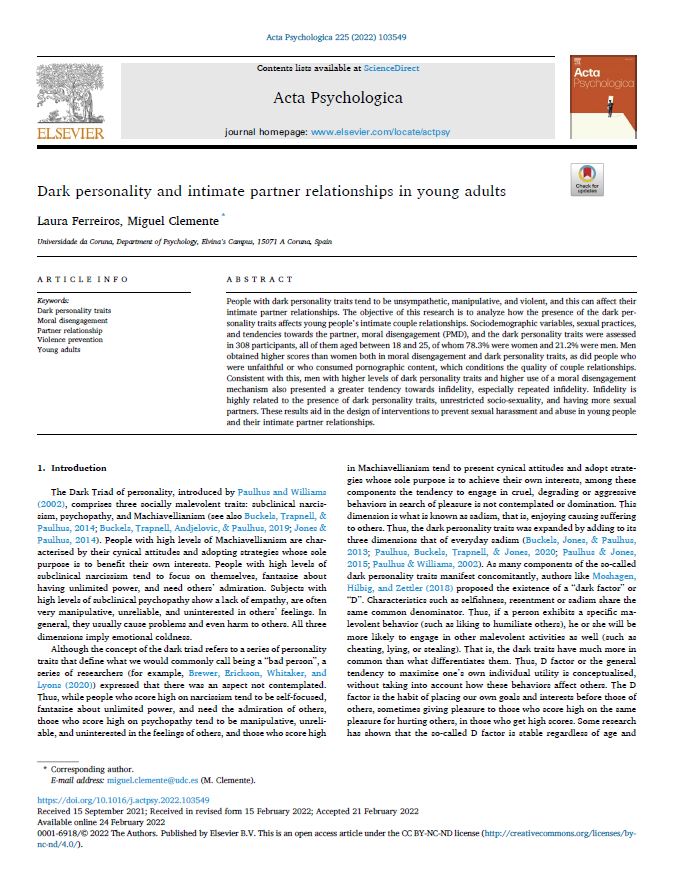Mental Health
Dark personality and intimate partner relationships in young adults
 Full Article Title: Dark personality and intimate partner relationships in young adults.
Full Article Title: Dark personality and intimate partner relationships in young adults.
Open Access: Yes
Abstract
People with dark personality traits tend to be unsympathetic, manipulative, and violent, and this can affect their intimate partner relationships. The objective of this research is to analyze how the presence of the dark personality traits affects young people’s intimate couple relationships. Sociodemographic variables, sexual practices, and tendencies towards the partner, moral disengagement (PMD), and the dark personality traits were assessed in 308 participants, all of them aged between 18 and 25, of whom 78.3% were women and 21.2% were men. Men obtained higher scores than women both in moral disengagement and dark personality traits, as did people who were unfaithful or who consumed pornographic content, which conditions the quality of couple relationships. Consistent with this, men with higher levels of dark personality traits and higher use of a moral disengagement mechanism also presented a greater tendency towards infidelity, especially repeated infidelity. Infidelity is highly related to the presence of dark personality traits, unrestricted socio-sexuality, and having more sexual partners. These results aid in the design of interventions to prevent sexual harassment and abuse in young people and their intimate partner relationships.
Relevance
The study “verified that the consumption of pornography is more common in young people with higher scores in Machiavellianism, psychopathy, and sadism” – that is, dark personality traits. “In addition, young pornography consumers use the mechanisms of moral disengagement.”
Citation
Ferreiros, L., & Clemente, M. (2022). Dark personality and intimate partner relationships in young adults. Acta Psychologica, 225, Article 103549. https://doi.org/10.1016/j.actpsy.2022.103549
